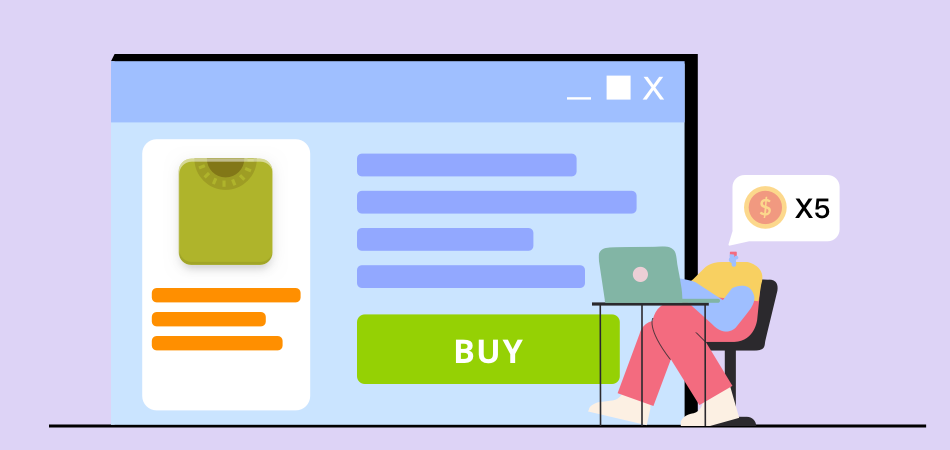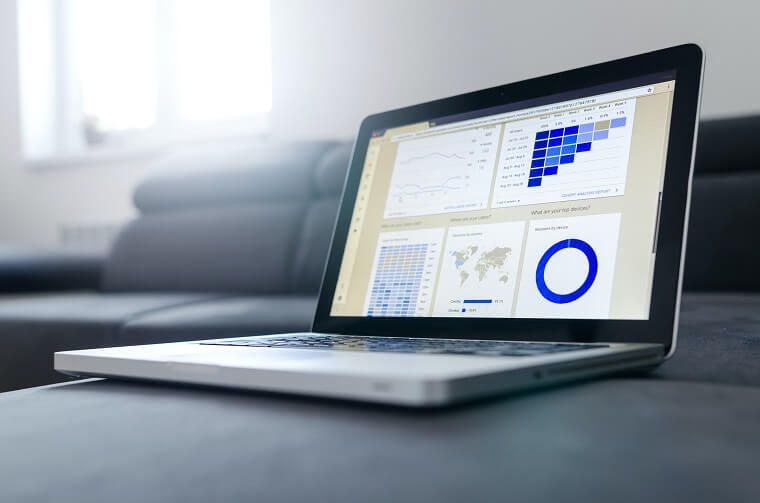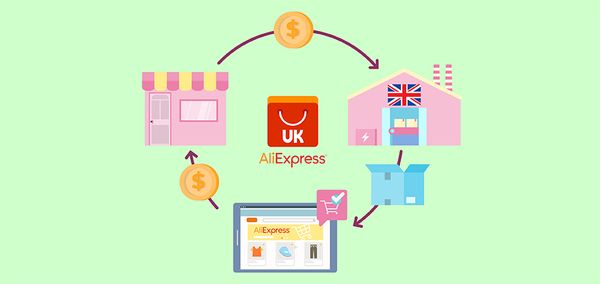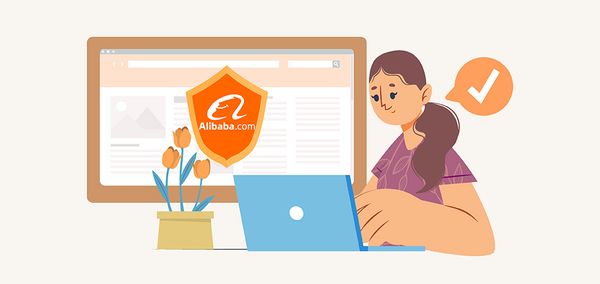Psychological Pricing: What Is It and Does It Really Help

There's a lot of talk about psychological pricing and whether or not it helps businesses sell more products. So, what is it and does it work? Psychological pricing is a technique that retailers use to make their products appear cheaper than they are.
This is done by pricing some items in odd amounts, such as $99 instead of $10, or by using words like "sale" or "discount." While the jury is still out on whether or not psychological pricing helps businesses sell more products, there's evidence that it can make consumers feel like they're getting a good deal, which may lead them to purchase more items.
So now, Let's have a detailed view of psychological pricing:
What is Psychological Pricing
You are passing by your favorite store and in the window "BOGO 50%!" "Only today! "And then did you come in and buy something you didn't even need? If the answer is yes, you, my friend, are one of the millions of victims of psychological pricing. But that's okay. Retailers, restaurants, and businesses employ psychological pricing in several ways. This is a good way to encourage customers to buy quickly, but is it also useful for SaaS companies? Here are some considerations about what psychological pricing is, some strengths and weaknesses, strategies, and whether you need to consider psychological pricing in your B2B business.
It is a pricing strategy that uses the power of Human Psychology or the subconscious to help customers spend more. This is typically collaboration across business functions (sales, marketing, customer success) to leverage market trends to create compelling offers to customers.
| Get Started Now to Grow Your Online Business with the Best AliExpress Dropshipping Tool - DSers! |
Psychological pricing can also be described as “Setting Price lower” which is actually not. For example, $99 is considered Cheaper Psychologically rather than $100, and consumers hesitate to bargain for just a single dollar, that’s where you got the margin. Discounts are another psychological pricing strategy that retailers can use to help sell their products.
This sounds interesting, right? But every positive has a negative also. Let's have a look at the pros and cons of psychological pricing:
Pros and Cons of Psychological Pricing
Like everything in life, psychological pricing comes with a fair share of pros and cons. It can work very well in many situations, but in some situations, it can be more harmful than good. Now I'm going to summarize some pros and cons to consider when assessing your psychological pricing tactics. Let's start with the good ones.
1. Boosts consumer’s attraction: Raise awareness of your product with any kind of big ad. If you're running a business in a physical store, a large red sign explaining a product promotion clearly forces people to see what you're selling. If people don't buy, at least your brand will get some attention.
2. Higher Return: Psychological discounts can provide a high return on a purchase for one-time sales, especially during peak seasons, also known as Festive seasons or holidays. Crowd-attractive behavior can lead to high returns at the end of the day.

3. Easy decision-making process: Most psychological pricing tactics simplify the consumer decision-making process. Consumers think less investment when discounts and promotions are set. This is good for retailers who profit from a one-time sale.
4. Urgency Factor: Psychological pricing creates a sense of urgency, depending on the strategy used. Customers will want to know the facts so they don't miss a deal. This will also quickly improve your high return on investment (RoI).
1. Tactical Recognition: Some people may see psychological pricing tactics and realize that they are using their customers. However, some people may recognize tactics and accept them as the essence of doing business.
2. Not for Long Term: The use of psychological pricing strategies is certainly not a long-term pricing solution. It can be converted quickly and quickly, but B2B companies need to make more solid and long-term plans. SaaS companies are built on recurring revenue, which leads to a lot of customer trust. Using pricing tactics can undermine their credibility.

3. Misinterpretended Value: With psychological pricing tactics, there is always the risk of misunderstanding value. At your price, you convey added value to your customers. This type of communication depends on how your customers perceive your pricing. Keeping prices low just to encourage consumers to trade quickly may mean that consumers don't think too much about the quality of their products and expect those low prices on an ongoing basis.
Popular Psychological Pricing Strategies/Plan
There are popular strategies behind all discounts, promotions, advertisements, and transactions. These are the four most popular:
· Fancy Pricing
This is the flashy and more formal name for all prices that appear in stores ending in "9". Researchers at MIT and the University of Chicago have found that prices ending in "9" lead to increased consumer demand for products. The Scientific logic behind this is that people read left to the right side. Therefore, when you encounter a price of $ 1.99, you will first see a "1" and recognize a price close to $ 1.
Charm pricing can also have the opposite effect. Prices ending in "9" indicate bargain prices. This means it's a great price. Prices ending in "0", on the other hand, can mean prestigious prizes and higher quality products. Attractive pricing is a bad idea if you want your product to be perceived as of higher quality.
· Artificial Time Restrictions
“BOGO! ONE DAY ONLY!” We`ve all visible this advert to a few tunes. Stores will location a synthetic time constraint on a sale to create a feeling of urgency. Stores appoint time regulations due to the fact they act as a catalyst for customers to spend. The mental tactic creates a feeling of worry in customers. If they don`t act now, they hazard lacking out. The reality is, though, there'll constantly be every other sale.
· Lack of Myriad
If you offer "buy one and get 50% off one" and "two items get 50% off", most people will choose the first option, even if they both have the same price. This scenario best represents the myriad of phenomena in which the client is unaware of the basic mathematical principles that apply to everyday life.
A study by Akshay Rao of the University of Minnesota School of Business found that consumers are refraining from discounting to get something more. “We don't know math, so we prefer to get more items than one discount” as said.

Another psychological tactic that is hidden in myriad is double discounts. In this case, the item is discounted at the first percentage and then at an additional percentage. For example, you can promote an item with a 25% discount. The company will then offer an additional 20% discount. Customers may consider this a 45% discount on an item, even though it is actually only a 20% discount from the discounted price.
· Price Display
How a rate seems to the bare eye influences the psyche. Longer fees appear like greater highly-priced than shorter fees, despite the fact that they`re the identical number. The reasoning is that longer fees take longer to examine so human beings subconsciously couple time with cost.
You definitely saw this in a restaurant that many restaurant menus have a smaller type of price, omitting the "0" and the “$” sign. If you omit the “$” sign, the price will be displayed shorter and will not have a direct relationship with the cash in your wallet.
Some Examples of Psychological Pricing
Whether you`ve found out it or not, you've got without a doubt are available to touch with psychological pricing techniques. Here are some examples of a number of the techniques we simply went through.
· After Christmas/Diwali Sale
Okay, so without any doubt, after Christmas and Diwali Sales are great because you got the desired product with an eyecatching price (you attracted because of Mental or you say psychological pricing).
Recently, many companies have adopted several strategies, especially innumerable. There are so many numbers and equations in the ads that are being displayed recently. My main point is that I have a business to do now without thinking too long. The company assumes that by throwing all these numbers, people aren't doing the calculations and analyzing how good those percentages really are.
· End of the Year (EotY) Sales
The End of the Year (EotY) sales ads also feature many psychological prizes in recent years. For instance, ‘One number that catches my eye in this ad is "$ 89". In particular, this price is a prime example of attractive pricing.’ That $ 89 looks much cheaper than if the ad says "90", especially because 90 is almost 100.
· Exclusive Sales/Deals/Offers
Then there are ads like this "exclusive transaction" that take advantage of the time limit. Usually, At the top of the page, you see a banner with a stopwatch showing the time remaining to secure the advertised transaction. The message "The offer ends in particular Hours: Mins: Secs." Is displayed. Running watches can cause panic among customers. They physically see that time is running out and recommend buying immediately.
· The Menus
The previous “Menu” example perfectly shows the effectiveness of price display. Nowadays, a simple HoReCa (Hotels, Restaurants, and Cafes) The entire menu is simple and easy to read. The price is right next to the name of the menu item. The price is not small, but italics do not have the "0" and "$" symbols. For Example, a dish has a price of $14.00 but on the menu, the rate is printed only 14. Not only does this look sleek, but 14 looks cheaper than $14.00 because it’s shorter.
Is Psychological Pricing Techniques are Recommendable
Do I recommend psychological pricing? I’m giving here my “Personal Opinion”. However, I think B2B SaaS companies have a much more effective pricing strategy. The recurring revenue model focuses on the relationship between the company and its customers. It's much better to set prices based on value and keep people in the long run.
Psychological pricing is better for retailers looking for short-term profits. Some retailers thrive on one-off sales, do whatever they want to close a quick deal, and make their psychological pricing strategies effective.
However, in the case of B2B, I think that you should add value instead of giving a discount. Instead of lowering the price, give out more at the same cost. This allows you to increase value and credibility while preserving your brand's fame.
Psychological Pricing Base
When most people think about pricing, they think about the cost of the product or service and the margin they would like to earn. However, there is another aspect of pricing that is often overlooked: psychological pricing. Psychological pricing is the use of special prices that are not based on cost, but on some other factor, such as the numbers, etc.
Psychological pricing is a theory that suggests that people make judgments about the value of products partly based on the prices that are listed. This approach to pricing can be used to help businesses boost sales and profits by manipulating how customers perceive the value of their products. There is some debate about how effective psychological pricing actually is, but it is still a popular technique used by many businesses.
Conclusion
In conclusion, psychological pricing does have an impact on purchasing decisions. However, it is important to note that not all consumers are affected in the same way, and not all products are suited to this type of pricing. Marketers should carefully consider the target market for their product before implementing a psychological pricing strategy. It is a technique that can be used to influence buyer behavior. Although many marketers believe that it is an effective way to increase sales, there is little evidence to support this claim. More research is needed to determine the effectiveness of psychological pricing.
The study's authors say that their findings could have implications for businesses that use psychological pricing tactics. "Our findings suggest that marketers should be cautious in selecting the special offers they use and how these are framed to consumers," study co-author Dr. Vanessa Patrick said in a statement. "For example, a retailer might be better off not using a buy-one-get-one-free offer, because it can actually lead to a loss in profit."













 Company
Company
 Why Choose DSers
Why Choose DSers
 Blog
Blog
 Help Center
Help Center




 Live Chat
Live Chat